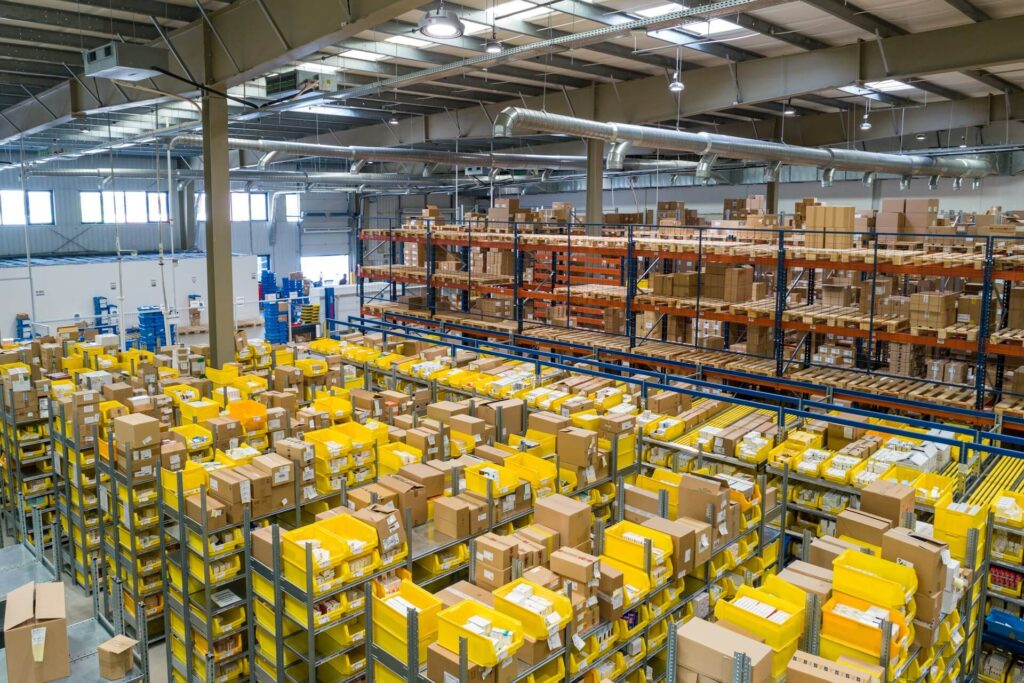In today’s dynamic business landscape, where the pace of commerce is relentless and customer expectations are higher than ever, the importance of having a well-structured and efficient warehouse cannot be overstated. Whether you’re a small-scale entrepreneur or a large corporation, investing in a warehouse facility can bring lots of benefits that significantly impact your operations, customer satisfaction, and bottom line. In this blog post, we’ll delve into compelling reasons why building a warehouse matters and how it can be a game-changer for your business.
Navigating the Costs of Building a Warehouse
The cost of building a warehouse encompasses a multifaceted financial landscape that extends beyond the initial construction expenses. It involves a meticulous evaluation of factors such as land acquisition, permits, design and architecture, materials, labor, utility infrastructure, equipment installation, and ongoing maintenance. When it comes to the cost to build a warehouse, it can vary significantly based on location, size, complexity, and regulatory requirements. Additionally, businesses must factor in indirect expenses like insurance, property taxes, security systems, and compliance with building codes and environmental regulations.
While the upfront investment in constructing a warehouse can be substantial, it’s essential to view it as a strategic long-term asset that offers a myriad of benefits, including enhanced operational efficiency, cost savings from efficiency, improved inventory management, and scalability to support business growth.
Optimized Inventory Management
One of the primary reasons for building a warehouse is to streamline inventory management. Having a dedicated space allows you to organize your products efficiently, implement robust tracking systems, and maintain accurate stock levels. This, in turn, enables you to fulfill customer orders promptly, reduce stockouts, and minimize the risk of overstocking. Having real-time insignt into your inventory, you can make data-driven decisions, optimize reorder points, and ensure that popular items are always available, enhancing overall customer satisfaction.
Faster Order Fulfillment
Speed is crucial in today’s fast-paced market, and a well-designed warehouse plays a pivotal role in accelerating order fulfillment. By strategically locating your inventory within the warehouse and implementing efficient picking and packing processes, you can significantly reduce order processing times. This agility enables you to meet tight delivery deadlines, offer expedited shipping options, and enhance the overall customer experience. Additionally, a warehouse equipped with modern technology such as automation and robotics can further streamline fulfillment operations, leading to even faster order turnaround times.
Cost Savings Through Economies of Scale
Building a warehouse allows businesses to benefit from economies of scale. By consolidating inventory in a centralized location, you can negotiate better pricing with suppliers, reduce transportation costs, and optimize storage space utilization. Bulk purchasing and storage also enable you to take advantage of volume discounts, lower per-unit handling costs, and minimize the impact of market fluctuations on pricing. Over time, these cost savings can translate into improved margins and a competitive edge in the marketplace.
Enhanced Quality Control
Maintaining stringent quality control standards is paramount for businesses across industries. A dedicated warehouse provides the infrastructure and environment needed to implement robust quality assurance processes. From conducting thorough inspections upon receipt of goods to implementing FIFO (First In, First Out) or FEFO (First Expired, First Out) inventory management practices, a warehouse empowers you to uphold product quality, compliance, and safety standards. This not only safeguards your brand reputation but also fosters customer trust and loyalty.
Scalability and Flexibility
As your business grows, so do your warehousing needs. Investing in a warehouse offers scalability and flexibility to adapt to changing demands and expansion opportunities. You can easily adjust storage capacities, reconfigure layout designs, and implement new technologies to accommodate evolving inventory volumes and operational requirements. Whether it’s seasonal fluctuations, market trends, or geographical expansions, a well-planned warehouse infrastructure provides the agility and scalability necessary to scale your business effectively.
Strategic Location and Distribution Efficiency
The location of your warehouse plays an important role in optimizing distribution networks and reducing logistics costs. By strategically positioning your warehouse(s) near major transportation hubs, customer clusters, or manufacturing facilities, you can minimize transit times, lower shipping expenses, and improve delivery reliability. This strategic advantage not only enhances supply chain efficiency but also enables you to reach customers faster, expand market reach, and capitalize on regional market opportunities.
Data-Driven Insights and Continuous Improvement
Modern warehouses are not just storage facilities; they are hubs of data and analytics. By leveraging advanced technologies such as warehouse management systems (WMS), RFID tracking, and IoT sensors, you can gather valuable data insights across your supply chain operations. Analyzing this data allows you to identify where things are slowing down, optimize workflows, predict demand patterns, and drive continuous improvement initiatives. From refining inventory replenishment strategies to enhancing workforce productivity, data-driven decision-making empowers you to stay agile, competitive, and responsive to market dynamics.

In conclusion, building a warehouse is not merely about having a physical storage space; it’s a strategic investment that yields tangible benefits across various facets of your business. From improving inventory management and order fulfillment speed to driving cost efficiencies and fostering continuous improvement, a well-designed warehouse infrastructure lays the foundation for operational excellence, customer satisfaction, and long-term growth. As businesses deal with all the complicated parts of doing business today, the role of warehouses as strategic assets continues to evolve, making them indispensable for success in today’s competitive landscape.








